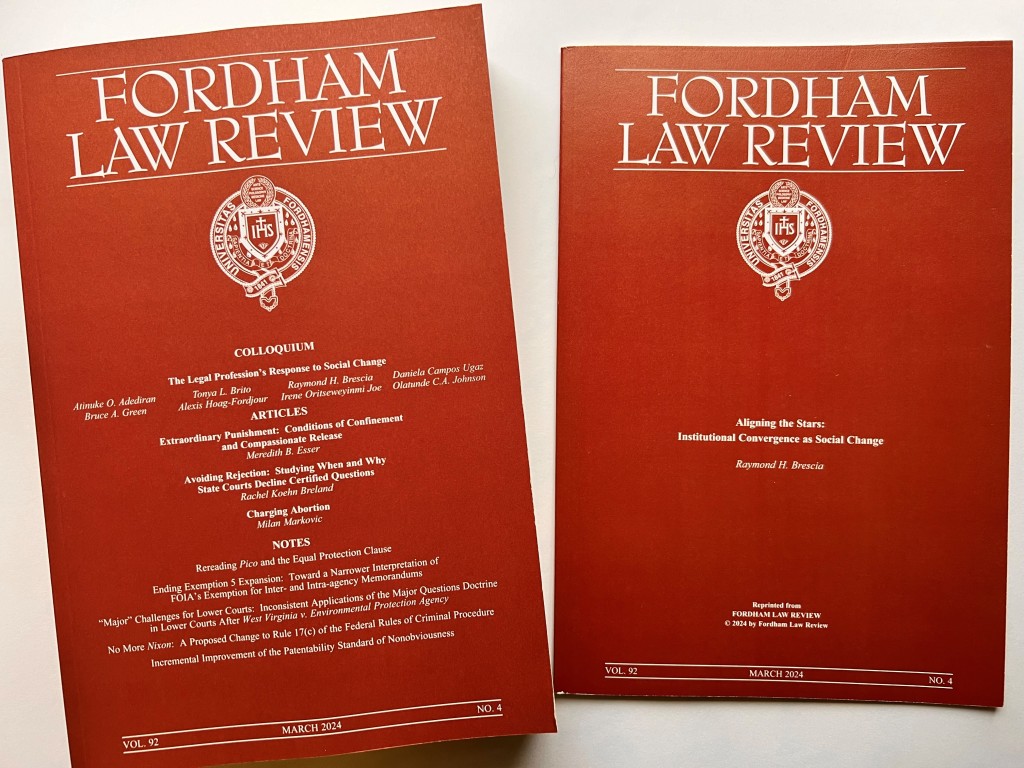
It was a thrill to contribute to this colloquium on social change hosted by the Fordham Law Review. My piece, “Aligning the Stars: Institutional Convergence as Social Change,” can be downloaded here. The abstract follows. I hope you’ll give the piece a look.
Legal scholars who study law, social movements, and social change have long attempted to recognize, understand, deconstruct, and resolve the interplay and tension between positivist views of law, realist appraisals of the functioning of courts and legislatures, the dangers of relativist and even nihilist understandings of how the law functions, and the ways in which law evolves in response to both popular and anti-democratic forces. Over the course of the last half-century or more, in many ways beginning with the Supreme Court’s decision in Brown v. Board of Education and the legislative enactments around civil rights that emerged in the decades after, legal theories have sought to explain the role that social movements have played in influencing not just legislation, but the collective understanding of the U.S. Constitution itself. This interest in the role of social movements in bringing about legal change, at the highest level of the American constitutional structure, may be at its peak. Yet those who study social movements from the sociological and political science perspectives have worked to develop a theoretics of social movements that incorporates the perspectives of scholars of organizations and institutions in the creation of an institutional perspective on social movements and the ways in which such movements—as both constructed of organizations and institutions even as they attempt to alter the organizational and institutional environment in which such movements operate—bring about social change. This Article attempts to bridge that theoretical divide by bringing a deeper theoretical, empirical and practical understanding of institutions and organizations into the study of law and social movements just as the theorists from social science and political science who study social movements have embraced the centrality of both institutions and organizations to the operation, and success, of social movements. It attempts to build on the empirical work on the success of social movements in relation to social change and legal change to uncover the institutional and organizational aspects of those successes. Building on Derrick Bell’s Interest-Convergence Theory, this Article introduces an approach, what I call “Institutional Convergence,” that seeks to build on the insights of diverse fields—sociology, political science, law, and psychology—to identify the critical role that both institutions and the individual actors that operate within them play when seeking to bring about social change. This synthesis of law and the emerging appreciation for the organizational and institutional turn in sociology and political science serves as a way to not just explain how social change happens, but to begin to construct a methodology for how to induce such change. It offers both theoretical and empirical support for this theory of change as well as a pragmatic understanding of how individuals and institutions can bring about the social change they seek.
Leave a comment